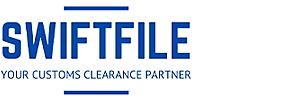CBAM – 8 Practical Tips on Getting CBAM Compliant
CBAM stands for Carbon Border Adjustment Mechanism. It is essentially a carbon tax on imports, and its aim is to help the EU decarbonise and reach its climate goals. EU producers in certain carbon-intensive industries will soon have to pay a carbon price under the Emissions Trading Scheme (ETS). CBAM will work in tandem with this to avoid “carbon leakage”- the relocation of production outside the EU to countries with less ambitions decarbonisation policies.
When fully up and running, importers of certain goods will have to buy certificates to cover the cost of their embedded carbon emissions.
Much of the communication on CBAM has been poor, and this hasn’t made it any easier for importers to accurately report on their CBAM goods. The guidance from the European Commission has been far from practical, while locally the EPA and Revenue have been scrambling to offer assistance to importers. From our detailed review of the guidance and our dealings with the EPA on behalf of our clients, I’ve outlined below 8 practical tips on CBAM reporting:
8 Practical Tips on Getting CBAM Compliant:
1. Use the C&E import reports from Revenue as the starting point in establishing your dataset. These are the import quantities that you will be expected to report against.
2. Goods coming from Northern Ireland suppliers should not be included in the CBAM reports.
3. Here is a full list of goods covered by CBAM SwiftFile-CBAM-goods-list. Any imports of these goods from outside the EU should be reported on each quarter.
4. If no CBAM goods are imported in a quarter, no CBAM report needs to be submitted.
5. To enable importers provide accurate reports, the first 2 CBAM reports can be amended multiple times until 31 July 2024.
6. Although very new, CBAM reporting is here to stay. Importers of CBAM goods should look to put processes in place for the data collection, and add it to the list of statutory reporting obligations.
7. Only goods entering free circulation should be reported on. Goods entering temporarily or under Inward Processing do not need to be included in the CBAM reports.
8. Blanket use of default values will no longer be allowed from Q3 2024 (30th June). Importers should be talking to their suppliers now to ensure they will have specific carbon emissions data on their imports.
The last point is particularly important. The reporting obligation is incredibly granular, and its clear that importers will struggle to obtain specific carbon emissions data from their suppliers. But at this stage the European Commission has shown no inclination that they will extend the use of the default values beyond Q2’s report. Its definitely a case of preparing for the worst, and hoping for the best.
If you would like to discuss how partnering with SwiftFile can simplify the CBAM reporting process, please get in touch brian@swiftfile.ie.



